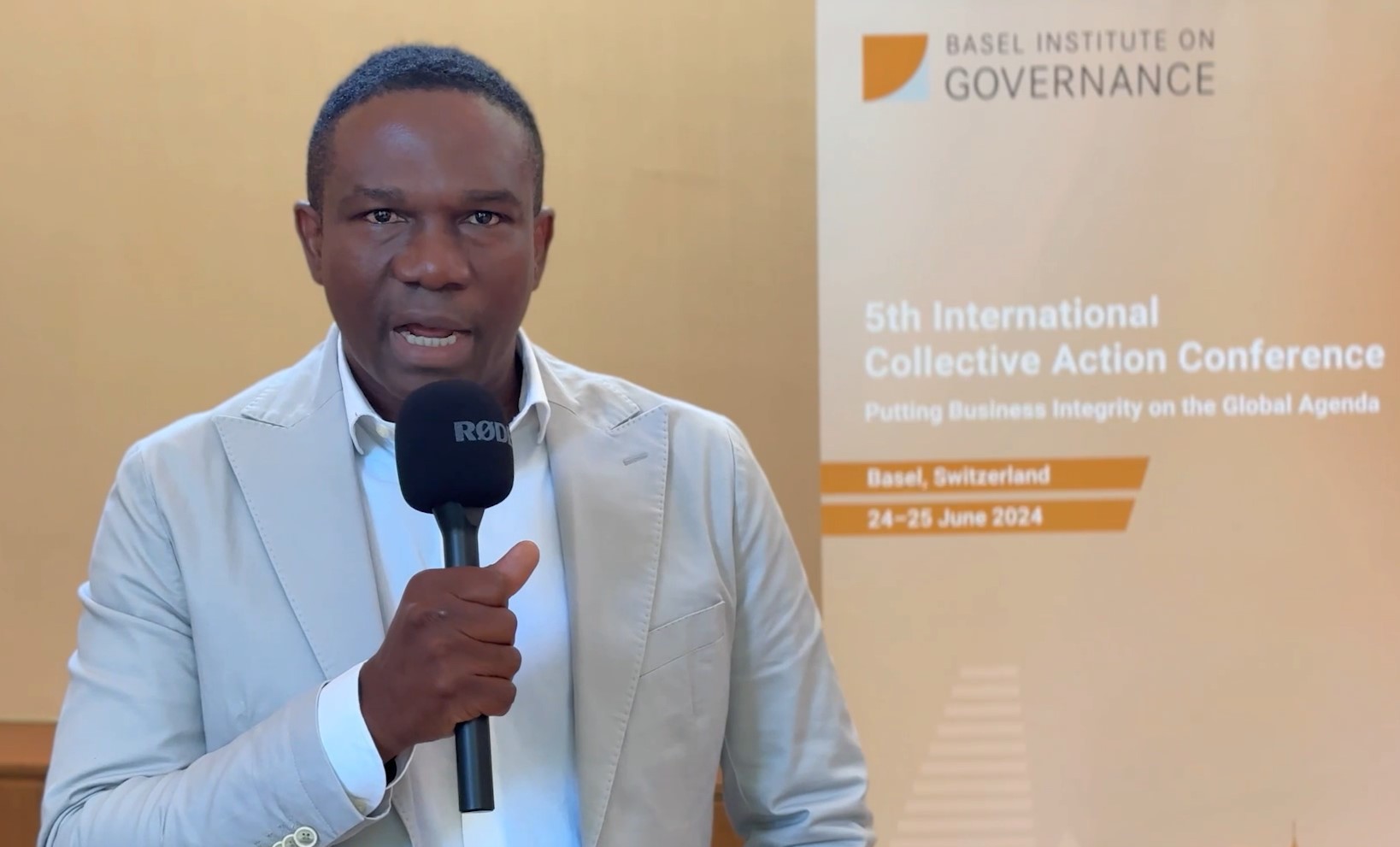How can tax authorities benefit from engaging in anti-corruption Collective Action initiatives?

By Salifu Koray, Chief Revenue Officer, Ghana Revenue Authority
Speaking at the Basel Institute’s International Collective Action Conference on 25–26 June 2024, Salifu Koray explained how the Ghana Revenue Authority was engaging in Collective Action through a World Customs Organization programme. The Anti-Corruption and Integrity Programme aims to restrict corrupt behaviour and promote good governance in customs operations and administration in Ghana and seven other countries.
In a short interview, he highlighted the strong benefits of engaging with other stakeholders in this Collective Action programme, saying:
“The Collective Action initiative within the Ghana Revenue Authority is yielding dividends. The stakeholder coalition has built a strong force in support of integrity.
Stakeholders include the Ghana Revenue Authority, the Ghana Integrity Initiative, the Office of the Head of Civil Service, the Committee of Freight Forwarders and the University of Ghana Business School. In other words, key representatives from the public sector, the private sector, civil society organisations and academia.
Specifically, some of the benefits that we have derived so far include:
- increasing revenue generation for the development of the nation;
- enhanced image of the Ghana Revenue Authority;
- a reduction in the perception of corruption;
- an increase in voluntary compliance.
Collective Action impacts positively on organisations, employees and stakeholders.”
Learn more
- See more Q&As with leading voices in promoting anti-corruption Collective Action, together with photos and videos, on the web page of our 2024 International Collective Action Conference.
- Learn more about Collective Action and how to engage on the B20 Collective Action Hub.


